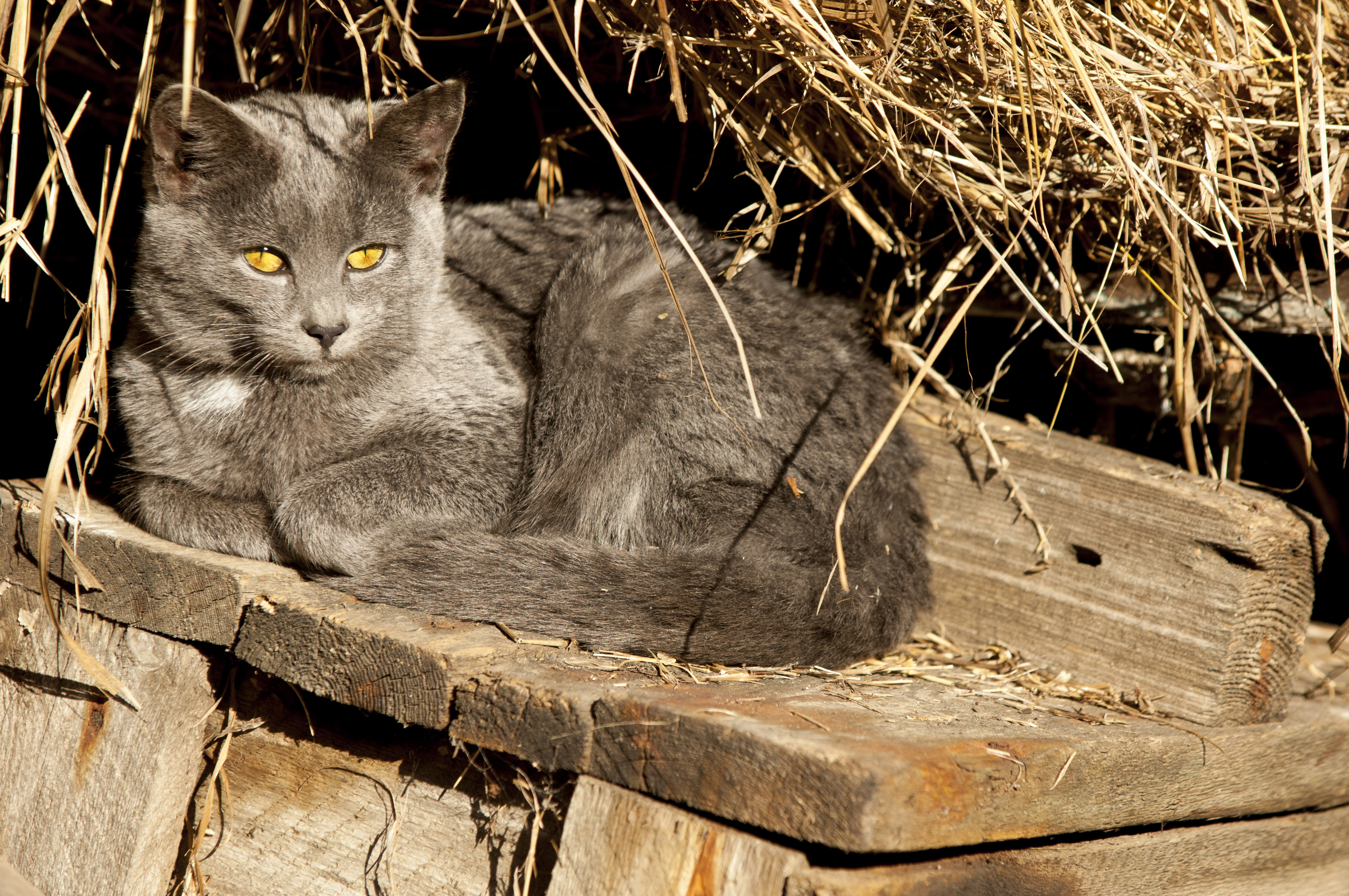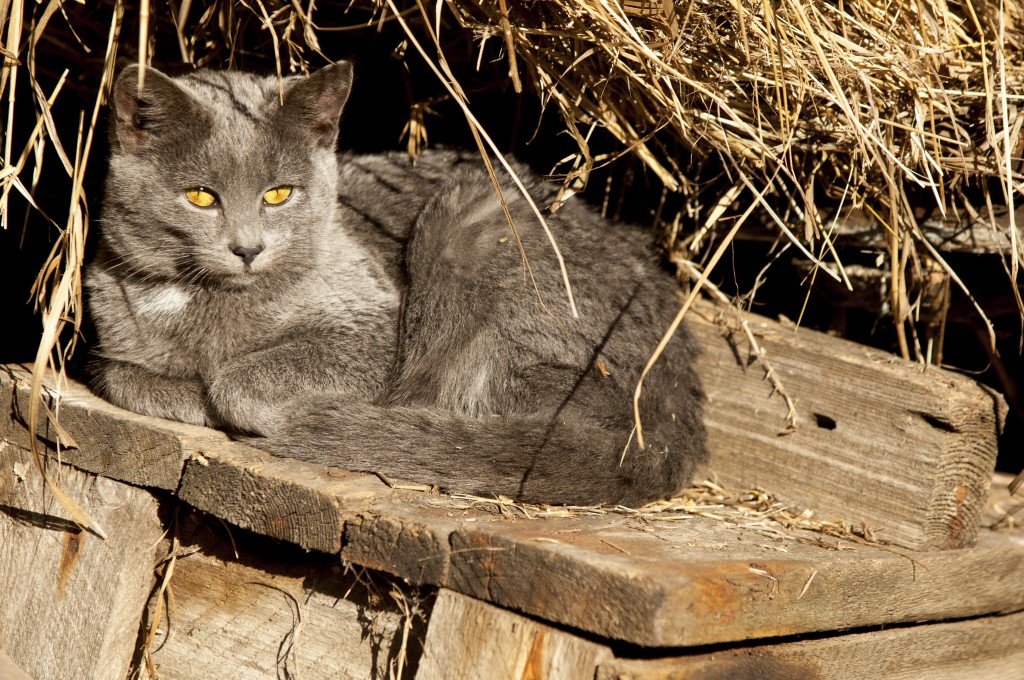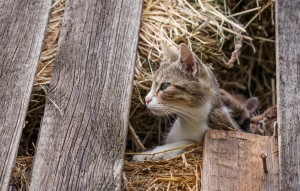Ferals, Strays and Barn Cats


This barn cat is enjoying a sunny day while waiting for the mice to come along. photo by A. Prokopenko
You’ve seen them around, cats that seem to have no home and may be skittish towards you. These are cats that have either lost their home and have to fend for their self or they were born in the wild. These are usually called stray or feral cats. A stray cat is one that has been socialized to people at some point in her life, but has left or lost her domestic home, as well as most human contact and dependence. A feral cat may never have had any contact with humans or her contact was minimal. She is fearful of people and survives on her own outdoors. You can often find colonies of these cats around out-buildings on country property. They are sometimes called barn cats or farm cats.
When not properly taken care of, they can live miserable lives. Over population, diseases and predators are some of the dangers that these cats face. But people are often the biggest danger to these cats. People get upset with the number of cats on their property and they shoot, poison, drown or torture the cats. Some will trap the cats and take them to the local humane society. Unfortunately, these cats are usually put to sleep.
If you have country property barn cats can be a real blessing if you handle them correctly. Cats were originally domesticated to become rodent control, a job that they are made for. When cats are in control, even snakes (and other predators) tend to stay away since there are no mice and rats to eat.
The first thing you’ll need to do is get your barn cat spayed or neutered. There are a number of agencies offering TNR (Trap, neuter, return) programs. These agencies will either assist you or take care of spaying or neutering that cat and bringing them back to you. Visit the resource page on Furry Friend’s web site to find out more about TNR programs. The next thing you can do is treat these cats with respect. Feed them just like you would any other pet and provide clean water. Many people are under the misconception that if you feed the cat it will not catch rodents. That simply is not true; it’s in the cats’ nature to hunt; they will do it simply for the fun of it. Finally you will need to provide adequate shelter and bedding where they can safely escape predators and stay warm even in the coldest part of winter.
Barn Cat Programs
The West Columbia Gorge Humane Society has the only barn cat program in our area. The next closest program is in Spokane, WA. The program is called “Farm Livin‘” and it’s run by Spokanimal. There is also one in Aurora, OR called Meow Village.
When you adopt a barn cat from the WCGHS, an adoption counselor will go over how to acclimate your cat to their new environment and tips for making the adoption a success. Those who adopt our barn cats agree to give them:
- Shelter in a barn, warehouse, outbuilding or stable
- Daily food and water – well fed cats tend to stay close to home and therefore do the best job of controlling rodents
- Long-term veterinary care, as needed
- A secure area the first few weeks in their new home while they acclimate to their new surroundings
If you have a building suitable for cats to live out their lives in safety and comfort, please consider giving an otherwise unadoptable cat or two a home. You will enjoy watching the cats and having the satisfaction of giving them a much needed home. For more information, please contact adoptions@wcghs.org or (360) 835-3464.

